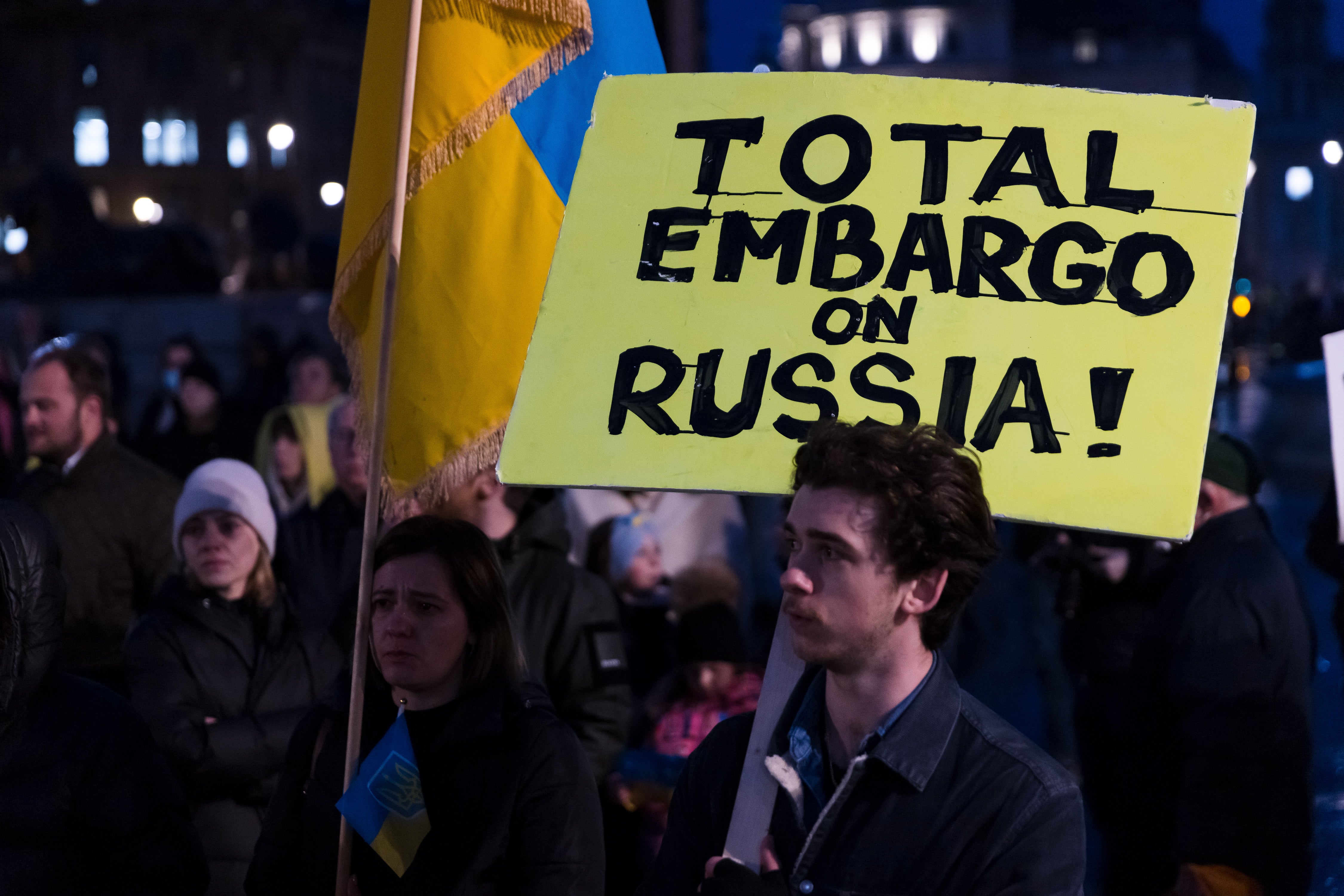The Independent's journalism is supported by our readers. When you purchase through links on our site, we may earn commission.
I’m a Russian American. I know you all want to ask me the same question — so here’s the answer
I feel like I can’t write anything remotely nuanced without being simultaneously rendered unemployable in the American media and detained immediately upon landing in Russia. I’m shaking a little as I write this right now

When Ukraine was invaded, my initial response was shock. Neither I nor any of my Russian friends thought it would actually happen, and — a week later — we’re still trying to figure out how or why it has.
It was devastating to watch the footage of people huddled together in underground stations, a woman crying in front of a bombed-out building, a man clutching a puppy to his chest as he ran. As I sat on my couch in front of the television, I found myself rocking back and forth.
I felt very bad for people in Russia as well. Most Russians have friends or relatives in Ukraine. In my experience, the worst kind of anxiety is being afraid for your life, and it’s second only to not knowing if someone you love is OK.
The sanctions are also hitting Russians very hard. The ruble has fallen to a historic low, and long lines form around ATMs amid fears of a breakdown in electronic banking. It is rumored that denouncing the war, even just on social media, is now punishable by up to 20 years in prison. Bans on flights and airspace have left many Russian citizens feeling like they are trapped inside the country. And then there is the fear that it will all get worse, escalating into a nuclear war.
Now it’s time to make it all about me. As a Russian American, I am no stranger to Russophobia. I wrote about it during the Crimean crisis in 2014, and now I’ve steeled myself for it again: the shifty-eyed looks of suspicion as soon as you tell anyone you’re “Russian.” You can feel them leaning away from you, as though your very existence constitutes a threat.
So far, I’ve seen a few causes for concern — a Russian restaurant was vandalized in Washington DC, and a friend in Ireland sent a picture from a pub with a neon sign saying “Don’t Be Russian” — but, overall, both social media and the news seem to be trying to highlight the fact that thousands of Russians have been protesting the war (at great risk to their lives) and that Russian citizens themselves are hurting and not to blame. There seems to have been a cultural shift away from demonization, stereotyping, and hate crimes since 2014, and that’s encouraging to see.
But some things remain the same. I’ve often described being Russian American as like being the child of bitterly divorced parents, and that remains true. I find myself watching Putin and Biden and — as with my parents — yelling, “You’re BOTH wrong. Now can you make up so we can eat dinner already?”
I feel like I can’t write anything remotely nuanced without being simultaneously rendered unemployable in the American media and detained immediately upon landing in Russia. I’m shaking a little as I write this right now.
I’m also preparing myself for the inevitable “If an active war does break out between America and Russia, whose side will you be on?” question. The honest answer? I have no idea, since the cornerstone of my identity has always been that I am both Russian and American, and I refuse to choose between the two. Being called a “double agent” by people who have watched way too many episodes of The Americans is usually funny — but not always.
Watching bars and liquor stores pour vodka into the gutter (a ridiculous practice, by the way, since Stoli is made in Latvia and Smirnoff in America), begs other questions. As an independent contractor, some of my clients are Russian companies. “Am I supposed to sever ties with them in protest? Am I a war profiteer if I don’t?” I ask myself as I look around my second-floor walkup, decidedly non-luxurious apartment. The ban on several Russian banks from SWIFT, the global messaging system that enables international bank transactions, means that, in practice, some of these companies are very unlikely to be able to pay me anyway. I joke that I guess I’ll just have to meet a man in Central Park with an attaché and say something along the lines of, “Volgograd is very chilly this time of year.” Russians always lean on gallows humor in times like these, but the truth is that it’s not that funny, as I’ve grown rather attached to eating.
The emotional and ideological aspects of sanctions are difficult as well. Am I supposed to tell some of these people — people who gave me another chance after I missed a deadline because I was sick, people who have given me advance payments when I was in the red during Covid, people who have been compassionate with me when I told them I needed a break because I was just too overwhelmed — that I can’t work with them anymore? Over a decision that they did not make, an invasion that they had nothing to do with?
As always, politicians make decisions, and it is ordinary people who suffer. And, as a Russian American, I once again find myself in no-man’s land.
Join our commenting forum
Join thought-provoking conversations, follow other Independent readers and see their replies
Comments
Bookmark popover
Removed from bookmarks